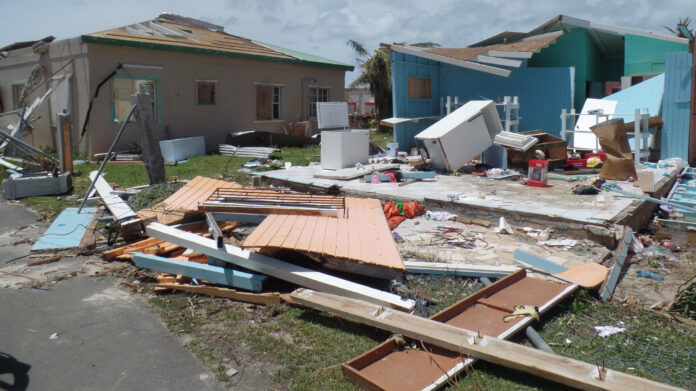
By Gemma Handy
Should the world’s richest countries which are responsible for the bulk of harmful emissions compensate poorer, vulnerable nations like Antigua and Barbuda that bear the brunt of climate change?
And if so, what could that restitution look like and who might qualify for it?
Those are some of the questions on the table at the United Nations climate conference currently taking place in Egypt.
For countries in the Caribbean who know only too well the impact of natural disasters, rising sea levels and prolonged drought, the talks underway at COP27 could prove critical to our future.
Leaders from almost 200 countries have gathered at the event where a potential ‘loss and damage fund’ is under the spotlight.
Such a notion would have been inconceivable some years ago, said Chief Environment Officer Diann Black-Layne, who is part of Antigua and Barbuda’s delegation.
“Conversations are starting which is new; before we wouldn’t even have had a conversation about it. Leaders are discussing it and people are listening,” she told Observer.
“Many of the developing countries and some of the developed countries’ leaders would like to see fossil fuel companies pay into the fund.”
Record-breaking profits made by oil and gas companies in recent months have left a bad taste in the mouths of consumers who are feeling the squeeze from soaring gas prices.
ExxonMobil reported almost US$20 billion in profit as the oil giant’s third-quarter results smashed Wall Street forecasts. Chevron took in more than $11 billion, while Shell’s profits totted up to US$9.5 billion.
Fossil fuels are the largest contributor to climate change, accounting for more than 75 percent of global greenhouse gas emissions and nearly 90 percent of all carbon dioxide emissions, according to the UN.
Little surprise then that small islands already buffeted by increasingly violent storms and disappearing coastlines have been calling for oil companies to share the wealth more equitably.
“Clearly governments cannot afford to pay for the damages anymore and so they’re looking for fossil fuel companies and the private sector to pay into the fund,” Black-Layne continued.
A report released in June by 55 vulnerable countries estimated their combined climate-linked losses over the last two decades to top US$525 billion – or about 20 percent of their collective GDP.
In Antigua and Barbuda, while many agree the biggest polluters should compensate smaller countries left reeling both physically and financially, others have called out hypocrisy when many of the decisions made locally can also have a disastrous effect on the country’s coastlines and wetlands.
So, are we practising what we preach?
“We’re not doing enough, that’s for sure,” Black-Layne said.
But she also blamed voters for failing to hold leaders to account on environmental issues.
“A lot of people in Antigua want to preserve the mangroves, but they don’t really advocate on that.
“When an election is coming up, people vote based on the job they can get, how much they’re paying in electricity, and other economic issues.
“In many manifestos, parties will say, we will build this here, we’ll build this there, and those are the things that get votes in Antigua and Barbuda. So that’s the mandate the people give whoever is selected.
“You never see anyone get elected because they’re going to protect the coastlines and the mangroves, or cut emissions. Until we elect our leaders in that way, we are going to continue having those problems,” she said.
Also among those representing the twin island nation in Sharm El Sheik is Prime Minister Gaston Browne, and several national negotiators. Environment Minister Sir Molwyn Joseph is due to join the group later this week.
In September, the country marked five years since Hurricane Irma devastated Barbuda, the effects of which are still being felt today.
The COP27 summit follows a year of extreme weather worldwide, from floods that killed more than 1,700 people in Pakistan to scorching drought in China, Africa and parts of the US that has stunted crops.
The US and EU blocked a proposal at last year’s climate summit in Glasgow to establish a loss and damage fund, agreeing instead to “dialogue” without a clear end goal.
Some large countries remain wary of creating such a fund, fearing spiralling liabilities.
Recent disasters have however intensified demands for a compensation mechanism which, if given the green light, could prove to be a lifeline in Antigua and Barbuda.
“A lot of people wait until disaster occurs, their homes flood out, their car floods out, the hurricane comes – and by then it’s too late, you can’t mobilise financing. Many people cannot afford insurance in Antigua; it’s too expensive,” Black-Layne said, adding, “So what we are trying do here at COP27 is make sure that when extreme events occur, we have money to help people rebuild.”
COP27 – the UN’s 27th ‘Conference of the Parties’ climate change conference – began on November 6 and runs until November 18.
